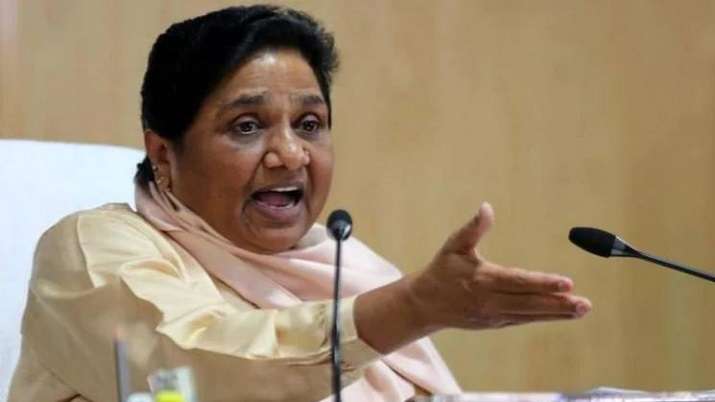ANKARA — As Sinan Ogan tells it, he has suddenly become the most sought-after man in Turkey.
The hard-right nationalist and third-place finisher in presidential elections last weekend, Mr. Ogan told The New York Times that he has been fielding calls all week, from cabinet members to opposition leaders and even the office of President Recep Tayyip Erdogan. They all want the same thing — help wooing his critical swing voters one way or the other in the May 28 runoff between the two front-runners.
“Very busy,” Mr. Ogan said at his office in the capital, Ankara, on Tuesday afternoon. “I spent my last three or four days negotiating issues with such high-level people.”
Mr. Ogan and other hard-right nationalists made a strong showing in Sunday’s presidential and parliamentary elections, prioritizing national security and the defense of what they consider Turkish identity. In particular, they advocate tough stances on the more than 3.3 million Syrian refugees.
Since the vote, Mr. Ogan’s has been called everything from a spoiler, who blocked the top presidential contenders from an outright victory, to a kingmaker whose supporters may play a role in deciding the runoff. That has given him a sudden clout, evidenced by the flood of calls he says he has received this week.
The strong performance of nationalists in these elections will likely pull Turkish government policy further to the right in the years to come, particularly with regards to the country’s Kurdish minority and Syrian refugees.
In the vote on May 14, Mr. Erdogan won 49.5 percent while his main challenger, the opposition leader Kemal Kilicdaroglu, took about 44.8 percent. Mr. Ogan won a surprising 5.2 percent.
With his comfortable lead in the first round, Mr. Erdogan now looks poised to win the runoff, especially if a good number of Mr. Ogan’s voters throw their support to him. Analysts said they expected more of those voters to choose Mr. Erdogan than his challenger.
Mr. Ogan, 55, is a former parliament member and expert on the Caucasus who speaks Russian and earned a doctorate in politics and international relations from a Moscow university.
He said he expects to announce his endorsement around Thursday, and assumes that 70 percent of his supporters would follow his recommendation. But political analysts are less sure, noting that Mr. Ogan lacks a powerful party apparatus to corral voters. And many of his supporters may have chosen him to protest the top contenders, and could skip the runoff.
Mr. Ogan said he has demands in exchange for throwing his support to a candidate, all of them aimed at promoting nationalist causes. For one, he wants a scheduled plan to deport the refugees from many countries, including Syria and Afghanistan. And in exchange for endorsing a candidate, he also wants a very senior post in the new administration to see his demands through.
“Why would I be a minister when I can be vice president?” he said.
He declined to say whether he was leaning toward a particular candidate.
He said he admired Mr. Erdogan’s work ethic, but also criticized him for not consulting enough with others before making decisions. Mr. Kilicdarolu, he said, was not as hard working but widely solicited others’ opinions.
The opposition camp overlaps with the far right on some issues, including the desire to send the Syrian refugees home, and could step up efforts sway nationalist voters before the runoff.
Idris Sahin, an official with DEVA, one of the opposition parties backing Mr. Kilicdaroglu, said his party had done a “sociological study” of Mr. Ogan’s voters and would soon launch a campaign targeting them.
On Wednesday, Mr. Kilicdaroglu released a campaign video attacking Mr. Erdogan and his party with harsh nationalist rhetoric.
“The border is honor,” Mr. Kilicdaroglu said, referring to the president’s allowing millions of refugees from Syria and elsewhere to settle in Turkey. He called the refugees an “unruly flood of people flowing into our veins every day” and warned that their number would increase and “threaten our survival!”
Mr. Ogan would not answer directly when asked whether he had spoken with Mr. Erdogan about a possible endorsement. Officials from Mr. Erdogan’s party and the opposition have not spoken publicly about any negotiations with Mr. Ogan.
“I talk to everyone,” he said.
Among Mr. Ogan’s other demands, he said he doesn’t want any political party that he considers connected to terrorism — a term the government often uses to refer to Kurdish militants — to have any role in the government.
He mentioned two parties specifically: the Free Cause Party, a hard-line Islamist party allied with Mr. Erdogan, and the pro-Kurdish Peoples’ Democratic Party, or H.D.P., which supported Mr. Kilicdaroglu.
The first grew out of an underground Islamist organization known for murdering journalists, intellectuals and others in previous decades. The party’s current leaders say they reject violence.
Turkey has fought a yearslong and deadly battle against Kurdish militants and the government often accuses the H.D.P. of cooperation with the Kurdistan Workers’ Party, which Turkey, the United States and the European Union all consider a terrorist organization. H.D.P. leaders deny that accusation and say they condemn violence.
Mr. Ogan credited his campaign with elevating nationalist causes during the election and hard-right factions also fared well in parliamentary elections. In particular, Mr. Erdogan’s strongest allies in Parliament, the Nationalist Movement Party, performed better than expected.
“We blew a very nationalist wind into the field,” Mr. Ogan said.
But analysts said it was more likely that such sentiments were already rising among the electorate and Mr. Ogan just happened to catch the wave.
Gulsin Harman contributed reporting from Istanbul.




